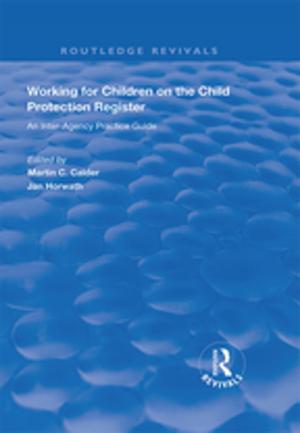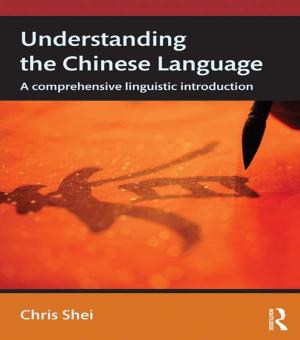Selections from Subh al-A'shā by al-Qalqashandi, Clerk of the Mamluk Court
Egypt: “Seats of Government” and “Regulations of the Kingdom”, From Early Islam to the Mamluks
Nonfiction, History, Africa, Egypt, Middle East| Author: | ISBN: | 9781315405247 | |
| Publisher: | Taylor and Francis | Publication: | April 21, 2017 |
| Imprint: | Routledge | Language: | English |
| Author: | |
| ISBN: | 9781315405247 |
| Publisher: | Taylor and Francis |
| Publication: | April 21, 2017 |
| Imprint: | Routledge |
| Language: | English |
Ṣubḥ al-A‘shā by al-Qalqashandī is a manual for chancery clerks completed in 1412 and a vital source of information on Fatimid and Mamluk Egypt which, for the first time, has been translated into English.
The text provides valuable insight into the Mamluk and earlier Muslim eras. The selections presented in this volume describe Cairo, Fustat and the Cairo Citadel and give a detailed picture of the Fatimid (AD 969–1172), Ayyubid (AD 1172-1250) and Mamluk (AD 1250–1412) court customs, rituals and protocols, and depict how the Mamluk Sultanate was ruled. It also contains a wealth of details covering the geography, history and state administration systems of medieval Egypt. An introduction preceding the translation contextualizes al-Qalqashandī’s role and manuscript, as well as introducing the man himself, while detailed notes accompany the translation to explain and elaborate on the content of the material. The volume concludes with an extensive glossary of terms which forms a mini-encyclopaedia of the Fatimid and Mamluk periods.
This translation will be a valuable resource for any student of medieval Islamic history.
Ṣubḥ al-A‘shā by al-Qalqashandī is a manual for chancery clerks completed in 1412 and a vital source of information on Fatimid and Mamluk Egypt which, for the first time, has been translated into English.
The text provides valuable insight into the Mamluk and earlier Muslim eras. The selections presented in this volume describe Cairo, Fustat and the Cairo Citadel and give a detailed picture of the Fatimid (AD 969–1172), Ayyubid (AD 1172-1250) and Mamluk (AD 1250–1412) court customs, rituals and protocols, and depict how the Mamluk Sultanate was ruled. It also contains a wealth of details covering the geography, history and state administration systems of medieval Egypt. An introduction preceding the translation contextualizes al-Qalqashandī’s role and manuscript, as well as introducing the man himself, while detailed notes accompany the translation to explain and elaborate on the content of the material. The volume concludes with an extensive glossary of terms which forms a mini-encyclopaedia of the Fatimid and Mamluk periods.
This translation will be a valuable resource for any student of medieval Islamic history.















